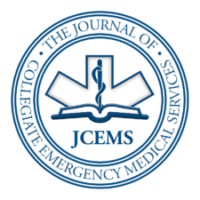Poster Presentation Abstract
Introduction: Expanding EMS agencies face many challenges pertaining to on-scene operations, administrative oversight, and sustainability. Specific challenges that prompted change within our agency include a critical shortage of EMTs, a $5000 budget deficit, inconsistent training of probationary members, and a high incidence of equipment deficiencies, delayed response times, and unsafe scene conditions. Program Development & Implementation: Our agency has addressed these concerns using a three-pronged approach tackling Operations, Administration, and Sustainability challenges. Specific operational changes include the implementation of pre-shift checklists, site-specific SOPs, and radio integration with the Yale Police network. New administrative practices were adopted to facilitate communication. The organizational structure of the student executive board was codified in revised organizational charts and bylaws. Both measures served to delineate the responsibilities of each position and the chain-of-command relationship between them. Communication was further heightened by establishing a regular meeting schedule with campus administrators. Sustainability practices, including the creation of formal uniform/equipment requisition procedures and organized recruitment drives, were also implemented for the first time. Program Evaluation: YEMS witnessed a significant decrease in the number of post-shift reports noting equipment deficiencies, scene safety concerns, or delayed ambulance response times after implementing new policies. Probationary members reported increased satisfaction with the quality of their training in interviews conducted at the end of the probationary period, and new recruitment/training policies resulted in a threefold increase in cleared membership (from 3 to 9). The organization eliminated the budget deficit and was empowered to focus on other institutional goals. Discussion/Conclusion: All student organizations experience growing pains, but EMS is unique in that growing pains can lead to serious consequences for patients and the organization. Standardized operations, improved communication, and increased sustainability are crucial tools for expanding collegiate EMS agencies to tackle unexpected challenges.








